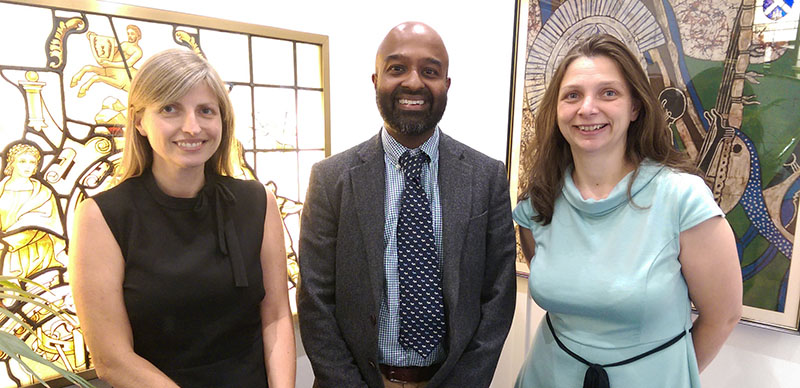-
-
- Council Members
- Role of Council Members
- Council meetings
- Council elections
- Previous election results
- Dr Louise Allum
- Dr Sam Bescoby
- Dr Andrew Clemence
- Dr Tshidi Gardiner
- Dr Reginald Godwin
- Paddy Gordon
- Dr Danielle Greenberg
- Dr Gerard Henry
- Dr Richard Hillman
- Dr Benjamin Kennedy
- Dr Tom Lonsdale
- Dr Darren Partridge
- Martin Peaty
- Alison Price
- Dr Peter Robinson
- Dr Jennifer Simmons
- Dr Sadie Spencer
- Dr Mary Thomas
- William Wilkinson
- Dr Lara Wilson
- Past-Presidents
-
- Advancement of the Professions Committee
- Standards Committee
- Audit and Risk Committee
- Education Committee
- Disciplinary Committee
- Charter Case Committee
- Preliminary Investigation Committee and Disciplinary Committee Liaison Committee
- Registration Committee
- Preliminary Investigation Committee
- Paper classification: some definitions
-
-
-
-
-
- About extra-mural studies (EMS)
- EMS requirements
- Information for vet students
- Information for EMS providers
- Information for vet schools
- Temporary EMS requirements
- Practice by students - regulations
- Health and safety on EMS placements
- EMS contacts and further guidance
- Extra-mural studies fit for the future
-
-
- Code of Professional Conduct for Veterinary Surgeons
- Code of Professional Conduct for Veterinary Nurses
- Contact the Advice Team
- XL Bully dog ban
- 'Under care' - guidance
- Advice on Schedule 3
- Controlled Drugs Guidance – A to Z
- Dealing with Difficult Situations webinar recordings
- FAQs – Common medicines pitfalls
- FAQs – Routine veterinary practice and clinical veterinary research
- FAQs – Advertising of practice names
- GDPR – RCVS information and Q&As
-
- Accrediting veterinary degrees
- Accrediting veterinary nursing qualifications
- Reasonable adjustments for student vets
- Reasonable adjustments for student veterinary nurses
- Health and disability in veterinary nurse education and training
- Reasonable adjustments for students and the UK disability discrimination legislation
- Educational assessment of veterinary nurses
- Roles of key stakeholders in the application of reasonable adjustments
- Examples of reasonable adjustments for vet nurse students
- External review of the RCVS by ENQA
- Requirements for remote and online student assessments
We need to talk about veterinary diversity
Getting our professions talking about diversity is one of the main aims of my presidency… it’s a small word with big meanings behind it. In the veterinary world we talk, quite rightly, about the diversity of career options available to us and the diversity of species we work with… that is all true and is a real strength of a veterinary career but that’s not the diversity I am alluding to.

The diversity I want to talk about concerns the people who make up our profession and the opportunities they are given to have fulfilling career.
Everyone is aware of how rapidly our profession has ‘feminised’, although women are still under-represented (even accounting for the impact of age) in both clinical and non-clinical senior roles.
Gender diversity is also of course only one aspect of diversity and we remain an overwhelmingly white profession with a high proportion of people coming from more affluent socio-economic backgrounds.
Encouraging diversity is part of the College’s current strategic plan but why do I personally care so much about this? I was raised to treat everyone as an individual – to meet people from all backgrounds with an open mind and to build my relationships on how people behaved, not how they looked, spoke or where they came from, and not by how many letters they had after their name!
Travelling a lot on a shoestring in my late teens and early twenties exposed me to many cultures and cemented a deep belief that people are essentially the same wherever they are in the world: a smile on the streets of London, Nairobi, Karachi, Chengdu or Lima mean the same to everyone.
Sadly, I don’t believe we live in an ideal world and as I have got older, I have become more aware of the structural elements in society that act to provide hidden barriers, as well as the fact that out-and-out discrimination, where individuals are prejudged on the basis of some characteristic or other, still exists. I don’t think that’s healthy for our professions and for some people within them.In an ideal world, if everyone simply treated each other as individuals, I would not feel the need to be starting this conversation.
So let’s start talking, and more importantly listening, about this. Earlier this month, Lizzie Lockett and I were delighted to have a meeting with Navaratnam Partheeban MRCVS, Senior Lecturer in Livestock Production at the Royal Agricultural University and one of the founders of the British Veterinary Ethnicity and Diversity Society (BVEDS), a group founded to celebrate, promote, educate and support people from all backgrounds on ethnicity and diversity within the veterinary professions.
Partheeban told me about the discrimination, both explicit and implicit, he had been subjected to by both clients and professional colleagues during his career.
I am sure others have similar stories and experiences. The aim of BVEDS therefore is to provide a voice for people to celebrate and appreciate diversity, share their experiences and support people regarding issues around ethnicity and diversity and it’s important that we support them to open up a dialogue around these issues.
We should all play a part in flagging whenever we see or hear things, whether from clients or other professionals, that are discriminatory.
But let’s also start thinking and talking openly about what structural elements might exist to hamper equal career opportunities for those already within the profession and/or prevent younger people from thinking about veterinary work (both veterinary medicine and veterinary nursing) as a good career option for them. There will of course be a diversity (!) of opinions on how important and relevant this is and what we can do.
I look forward to hearing yours.
Published on 28 September 2018